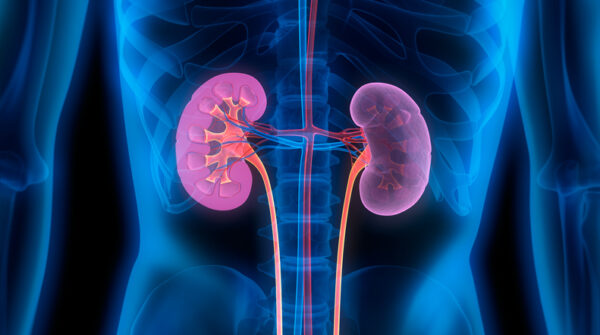
Vera Therapeutics has data from a mid-stage test showing its lead drug led to statistically significant reductions in proteins associated with a rare kidney disease that has few treatment options. Based on those early results, Vera plans to advance its molecule to a pivotal test, allowing the biotech to keep pace with a growing field of competitors.
The Vera drug, atacicept, is in development as a treatment for immunoglobulin A nephropathy (IgAN), a disease characterized by a buildup of an antibody called immunoglobulin A, which in turn leads to inflammation that damages the kidney. Atacicept is a fusion protein designed to block B lymphocyte stimulator (BLyS) and a proliferation-inducing ligand (APRIL), two proteins that stimulate the production of autoantibodies that contribute to some autoimmune diseases. The Vera drug is administered as a once-weekly subcutaneous injection.

Behavioral Health, Interoperability and eConsent: Meeting the Demands of CMS Final Rule Compliance
In a webinar on April 16 at 1pm ET, Aneesh Chopra will moderate a discussion with executives from DocuSign, Velatura, and behavioral health providers on eConsent, health information exchange and compliance with the CMS Final Rule on interoperability.
The main goal of the 116-patient placebo-controlled Phase 2b clinical trial is to show a reduction in proteinuria, or high levels of protein in the urine that are associated with IgAN. According to preliminary data released after the market close Tuesday, of the three doses tested, the high dose of 150 mg was best, achieving the main goal and leading to an average 33% reduction in proteinuria from baseline after 24 weeks of treatment. The baseline levels of patients in the trial were not specified.
South San Francisco-based Vera added that the preliminary results suggest a continuing trend of effect from the drug, with proteinuria reductions observed at week 36. On measures of safety, Vera said atacicept was well tolerated by patients. Serious adverse events were observed in 2% of patients in all of the atacicept arms and in 9% of those in the placebo group. Vera plans to present the full dataset at a future medical meeting.
“Atacicept could be a transformational treatment for patients with IgAN who currently have limited treatment options,” Vera CEO Marshall Fordyce said in a prepared statement. “We look forward to rapidly advancing the 150 mg dose into our planned Phase 3 pivotal trial.”
The FDA approved the first IgAN therapy a little more than a year ago. That Calliditas Therapeutics drug, Tarpeyo, is a steroid whose immunosuppressive effect is broad. Companies developing therapies for this disease are trying to offer a more targeted effect.

A Deep-dive Into Specialty Pharma
A specialty drug is a class of prescription medications used to treat complex, chronic or rare medical conditions. Although this classification was originally intended to define the treatment of rare, also termed “orphan” diseases, affecting fewer than 200,000 people in the US, more recently, specialty drugs have emerged as the cornerstone of treatment for chronic and complex diseases such as cancer, autoimmune conditions, diabetes, hepatitis C, and HIV/AIDS.
In a note sent to investors, William Blair analyst Matt Phipps wrote that the Vera data continue to support the targeting of APRIL. But the 33% reduction shown by atacicept falls short of the 50% reduction reported for BION-1301, an APRIL-blocking antibody drug that Chinook Therapeutics added to its pipeline through a 2020 merger with Aduro Therapeutics. Chinook presented the updated Phase 1/2 data in November during the annual meeting of the American Society of Nephrology. The usual caveats about cross-trial comparisons apply. Furthermore, Phipps noted that the Chinook trial has not enrolled a placebo arm and the patient numbers for both studies are small. That said, Phipps said the BION-1301 results reinforce the Chinook drug’s position as potentially the best in the class of APRIL-blocking drugs.
Other IgAN contenders include Novartis with iptacopan, a small molecule designed to block a complement system protein called factor B. Startups are joining the mix too. This past fall, Human Immunology Biosciences unveiled $120 million in financing, part of which will be used to support clinical development of a drug candidate that depletes plasma cells that produce antibodies underlying autoimmune disorders. IgAN is one of the disease targets for HI-Bio, which licensed its lead drug, felzartamab, from MorphoSys.
Vera said a Phase 3 test of atacicept, which it licensed from Merck Serono, is expected to begin in the first half of this year. Here’s more on Vera, which went public in 2021.
Photo: peterschreiber.media, Getty Images












